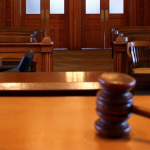The road to compliance for the Hotel Consumption Tax began with the enactment of the following laws by the Lagos State Government: The Hotel Licensing Law Cap H.6, Laws of Lagos State of Nigeria 2003; The Hotel Occupancy and Restaurant Consumption Law No. 30, Vol. 42, Lagos State of Nigeria official Gazette 2009, (Now contained in H8, Vol. 5, Laws of Lagos State 2015 hereinafter referred to as the Law) and The Hotel Licensing (Amendment)Law No. 23, Vol. 43, Lagos State of Nigeria official Gazette, July 2010.
The validity of these laws was challenged in the case of the Attorney-General of the Federation v. Honorable Attorney-General of Lagos State (2013) LPELR 20974 SC by an originating summons taken by the Federal Government as Plaintiff against Lagos State.
The Supreme Court on July 19, 2013 by a full panel of seven Justices declared that it is only a State House of Assembly that can make laws on tourism, licensing and grading of hotels, restaurants, fast food outlets and other hospitability establishments in the country and it dismissed the case filed by the AttorneyGeneral of the Federation.
The Court consequently refused to grant the declarations sought by the plaintiff and also refused the order of perpetual injunction sought in the originating summons and held thus: “In the whole, the case of the plaintiff fails in its entirety and it is dismissed”. No order is made as to costs. Consequent upon the decision of the Supreme Court, the law was listed as one of the taxes payable to the States in the Taxes and Levies Approved List for Collection Amendment Order dated 26th May, 2015 which was issued by the Minister of Finance on the recommendation of Joint Tax Board. The Joint Tax Board comprises of the Chairman of FIRS and chairmen of the Internal Revenue Service in the 36 States of the Federation. This body from the composition is the highest organ in the administration of tax in Nigeria.
The Law imposes tax on goods and services consumed in Hotels, Facility or Event Centers within the territory of Lagos State, the law imposes the tax on any person, corporate or otherwise who pays for the use or possession of any hotel, facility or event Centre or purchases consumable goods or services in any restaurant whether or not located within a hotel in Lagos State.
The rate of the tax imposed by the law is 5% of the total bill issued to the customer excluding value added tax and service charge. The misconception that value added tax and consumption tax are one and the same is based on a wrong premise as the two taxes are not paid to the same tax authorities. There is no provision in the Constitution of the Federal Republic of Nigeria that confers authority on the National Assembly to legislate on consumption tax.
It has been argued in some quarters that the Value Added Tax (VAT) Act being a law made by the National Assembly has covered the field and reliance is placed on the Supreme Court decision in the Attorney General of Lagos State v Eko Hotels and Anor (2017) LPELR 43713 SC Where an Interpleaders Summons was taken out by Eko Hotels to determine who is entitled to the money deducted from customers as services rendered to its customers.
The Supreme court Per Okoro JSC in a concurring judgement stated as follows: ‘’I shall limit myself to the issue before this Court. We are neither asked to determine on the validity of Value Added Tax Act nor the Sales Tax laws of Lagos State (Pp. 61-64 paras. D) In the final analysis, it is instructive to note that the tax or what may be called a “user charge” is imposed on the consumers and not the Hotels or Event Centres who merely act as agents for collection. It is therefore difficult to understand what exactly the complaint of the Registered Trustees of Hotel Owners and Managers Association is and what their locus standi in this matter is about. The recent attempt to litigate on an issue already decided by the Supreme Court must be deplored and goes to no issue under any guise. It is worrisome that a party will approach the Court not to challenge the validity of the Law but the Regulation made pursuant to the Law viz- Hotel Occupancy and Restaurant Consumption (Fiscalisation) Regulation 2017 meant to capture the appropriate tax accruable to the State for the purpose of accountability and transparency by the hotel owners and operators of restaurants and event centres in Lagos State. It was therefore not surprising that in the Registered Trustees of Hotel Owners and Managers Association of Lagos (suing for itself and on behalf of all its members) v Attorney-General of Lagos State & Federal Inland Revenue Service, the Federal High Court, per Aikawa J. held that the consumption tax imposed and chargeable on goods and services supplied or consumed in hotels, restaurants and event centres within Lagos State is valid and enforceable. Rather than appeal the matter determined by Aikawa J, the Registered Trustees of Hotel Owners and Managers Association of Lagos (HOMALS) instituted another suit before Faji J. of the same Federal High Court seeking among others a declaration that any purported amendment to the Taxes and Levies Approved List for Collection Act Cat T2, LFN 2004 by the Minister of Finance, a member of the Executive Arm of Government, including but not limited to (Taxes and Levies Approved List for Collection Act) (Amendment) Order, 2015 is illegal, unconstitutional, null and void.
The issue of power to amend a Schedule by the Minister arose from the proceedings before Aikawa J and the same issue was placed before Faji J. by the HOMALS without disclosure of the preceding matter. Being unaware of the judgment of Aikawa J, Justice Faji of the Federal High Court, Lagos division gave a judgement on 8 th day of May, 2020 in favour of the HOMALS.
The Lagos State Government (LASG) not being a party applied for leave to appeal as an interested party and sought injunctive relief to restrain the parties from enforcing the judgement of the Court in any manner whatsoever pending the hearing and determination of the Appeal. The Court in its ruling delivered on the 29th of June 2020 granted the relief of LASG including the injunction restraining restrain the parties from enforcing the judgement of the Court in any manner whatsoever pending the hearing and determination of the Appeal.
It is elementary in law that the grant of an injunction by a High Court pending an appeal is a suspension of the effects of the judgement pending when the Court of Appeal will either uphold or set aside the judgment.
The question however being asked is whether the Lagos State Internal Revenue Service (LIRS) can proceed with the enforcement of the consumption tax pending the determination of the appeal against the judgment of Aikawa J. It must be stated that the judgment of Aikawa. J simply reiterates the Supreme Court Judgment of 19th, July 2013 in which there was a finality on the pronouncement of the validity and constitutionality of the Lagos State Hotel Occupancy and Restaurant Consumption Law. The finality of every matter before the apex court projects and guards it against unnecessary review and rehearing or re-opening of cases that have been determined by it.
The Supreme Court is not final because we are infallible, rather we are infallible because we are final. It must therefore jealously guard against such application to set aside its judgment otherwise a floodgate would be opened for the bastardization of its judgment on flimsy grounds of application to set it aside. Adegoke Motors Ltd v. Adesanya (1989) 3 NWLR (Pt. 109) 250 referred to in STANBIC IBTC BANK PLC V. LGC LTD (2018) 10 NWLR (PT 1626) 96. The LIRS, following the judgment of the Supreme Court can therefore proceed with the enforcement of the law until the Supreme Court varies its judgment or sets it aside. We must all note however that the same issues and facts cannot be litigated twice and there must be a finality to litigation on a matter already decided by the Supreme Court of Nigeria.
Adebayo Haroun is of the Lagos State Ministry of Justice.








